#Factories
Mazda and Toyota Take Their Relationship to the Next Level, Start Planning an Assembly Plant
Toyota Motor Corp. is set to strike a deal to take a 5-percent stake in fellow Japanese automaker Mazda Motor Corp. The alliance includes the construction of a joint-venture $1.6 billion U.S. automotive plant and sharing EV technology — showing that Mazda hasn’t totally sworn off the idea of an electric car.
The two companies have been dating casually for a couple of years; Toyota sometimes uses Mazda’s Mexican factory to build compact cars, the two have fostered a love child (the Mazda 2-based Toyota Yaris iA), but this is the first time they’ve seriously considered moving in together. Toyota claimed the decision was about more than just a strategy to share technology, suggesting the automakers had genuine feelings for one another.
“The greatest fruit of our partnership with Mazda is that we have found a new partner who truly loves cars,” Toyota President Akio Toyoda said in a statement, “It has also sparked Toyota’s competitive spirit, increasing our sense of not wanting to be bested by Mazda. This is a partnership in which those who are passionate about cars will work together to make ever-better cars. It is also the realization of our desire to never let cars become commodities.”
FCA's Detroit Dodge Viper Assembly Plant to Close Indefinitely
Fiat Chrysler Automobiles is abandoning Conner Avenue Assembly in Detroit, Michigan. The plant produced Dodge Vipers sporadically for over two decades, but low sales volume eventually led to FCA’s decision to remove the high-performing model from its lineup. In 2016, Dodge only sold 630 Vipers. A final, limited-edition 2017 run sold out in less than a week.
The two-seater doesn’t meet upcoming safety regulations due to its absence of side-curtain airbags. Rather than undergo a costly redesign, FCA chose to let nature take its course and placed the model in hospice care back in 2015. However, the future of the assembly plant and its employees were uncertain at the time.
Toyota CEO Promises Automaker Will Be Better, Faster, Stronger
Jim Lentz, CEO of Toyota Motor North America, is going to great lengths to tell the world his company is only going to get better in the years to come — proving to his employer that he knows exactly what his job entails. In addition to explaining how the brand’s new modular architecture will give assembly lines much-needed flexibility, this week also had him announcing Toyota won’t dawdle anymore on getting product into consumer hands.
“I think we’re going to be quicker to market,” Lentz announced to the press at Toyota’s brand new $1 billion Texas headquarters on Thursday. “Before if you were part of the sales organization, you had your own legal team [and] HR team, so there was a lot of redundancy across the organization … we were able to streamline that and, with a lot of the headcount changes, we were able to hire more engineers to our operation in Ann Arbor, as we continue to develop vehicles here in North America, for North America.”
Daimler, BAIC Investing $735 Million Into Chinese EV Production Pretty Much Out of Necessity
Daimler AG is dumping half of a 5 billion yuan sum, or 735 million dollars, into China as part of a joint venture with BAIC Motor Corp. Together, the companies plan to establish the groundwork for competent EV production in the region — meaning a good ol’ fashioned battery factory.
The bill is split between the two firms, as China requires every foreign automaker to partner with a domestic one to do business within the country. The new factory will be a product of Beijing Benz Automotive, a blandly named limited liability company created to further Mercedes’ interest within the country and bolster its EV production capabilities globally.
Elon Musk Plans to Perform the Same Tasks as Tesla's Injured Workforce
Elon Musk has taken some rather extreme measures to ensure Tesla Motors’ employees don’t unionize. The CEO has a rigid production schedule he hopes to adhere to and doesn’t want organized labor throwing unforeseen variables into the mix. However, the UAW has made headway in the last twelve months after half-heartedly courting Tesla’s workforce for years.
Musk’s initial opposition came by way of written rebuttals to very specific criticisms regarding workplace safety and pay. He later accused a particularly aggressive critic of being a paid union stooge. Musk then hinted at the prospect of free frozen yogurt and roller coasters once the company approaches profitability.
Now, he’s apparently decided to reenact the circumstances of specific work-related injuries to prove the company is taking the appropriate safety precautions (or to sniff out areas needing improvement). It’s bizarrely parental but also kind of endearing, if you forget about the union angle.
Front-drive Efficiency: Ford to Sink $350 Million Into New Transmissions
Despite news that Ford Motor Company has started making plans to scale back its workforce in North America and Asia, there are 800 Michigan-based employees who needn’t fear for their jobs — all thanks to commitments made in the company’s 2015 deal with the United Auto Workers. Ford confirmed on Friday that it will be investing $350 million into its Livonia Transmission plant.
Keeping its end of the bargain means the site will be safe from layoffs and may even bring aboard new employees, although the number of new hires is unclear. It’s assumed the majority of the 800 hourly positions will be filled by Ford dipping into its own staffing pool.
Ford Invests $1.2 Billion Into Its Michigan Facilities, But the Cash Isn't a Big Surprise
Ford Motor Company has announced that it will invest $1.2 billion into three Michigan facilities to strengthen its status among truck and SUVs manufacturers and to further enhance its role as a “mobility company.” Most importantly, the cash is needed if Americans ever want to get their hands on a Bronco or Ranger again.
Many of the investments are included in the automaker’s 2015 promise to pour nine billion dollars into its U.S. plants over the next several years. In an agreement with UAW made almost two years ago, Ford said it would pour $700 million into the Michigan Assembly plant, $150 million into the Romeo Engine plant, and $400 million for Flat Rock Assembly.
While these were not the only locations promised capital, Ford released an official statement that all three would see the promised amount — or better.
As Tesla Plant Shows Early Signs of Unionizing, Musk and UAW Trade Blows
Some employees at Tesla Inc.’s Fremont, California factory have been moving ahead with efforts to unionize. Fronting that campaign is Jose Moran, who claims to have worked at the plant for the last four years. He and other disgruntled Tesla employees have reached out to the United Automobile Workers, claiming they work long hours for low pay under unsafe conditions as the company pursues aggressive production deadlines.
While Tesla’s CEO has responded with his own claim that Moran was paid by the UAW to join his company and proselytize for a union, the organization promptly refuted that suggestion by accusing Tesla of spreading dreaded “fake news.”
Faraday Future Converts Planned 'Mega Factory' Into Smaller Scale Starter Plant
Faraday Future had already broken ground on a sprawling $1 billion factory in North Las Vegas when a multi-million dollar late fee forced contractors to go on hiatus last November. Then, at CES 2017, the company announced the resumption of construction as the city’s mayor waved to the crowd — a physical manifestation of goodwill towards the company’s new promises.
What they did not say, however, was that the factory would be a fraction of the size as originally claimed, existing as a smaller-scale starter plant. Faraday is the automotive equivalent of Monty Python’s Black Knight. It continues to suffer horrendous blows that cripple its operational ability, all the while telling the world, “Tis but a scratch.”
Toyota Invests $600 Million In the Heartland, Verifies Its Loyalty
Toyota is planning a $600 million expansion of its Princeton, Indiana assembly plant to enhance production capacity and modernize the factory for the next-generation Highlander.
The company’s financial commitment underscores Toyota’s new and carefully domesticated image while serving to remind everyone that its cars are built in America for Americans — not unlike the company’s red, white, and blue display cars at this year’s North American International Auto Show.
“This announcement shows Toyota’s commitment to continued U.S. investment,” the company said in its official announcement. “This expansion is part of Toyota’s localization strategy to build vehicles where they are sold.”
Jaguar Land Rover Considering Turkey, Austria For New Factory
Amid a pay dispute between itself and the U.K. trade unions, Jaguar Land Rover is considering Turkey and Austria over North America for a new factory.
Building Boom At Volkswagen: Ten More Plants
No overcapacity problems at Volkswagen – at least not globally, and especially not in China. “Within the coming years, we will build at least ten more plants – seven of those in China,” Volkswagen chief Martin Winterkorn said today in Wolfsburg, with Automobilwoche taking notes. By 2016, Volkswagen will have capacity for more than four million units in China, that’s about half of VW’s current worldwide output.
Subaru Is Like, So Over China, Totally Moved On To America
Subaru’s failed relationship with China hasn’t burdened Subaru with too much baggage; the automaker is already moving on, planning to expand its Indiana plant to build more Legacy and Outback models.
China Hits Limits To Growth: Not Enough Car Factories
“We can’t make cars as fast as they sell in China,” said an old friend of mine last night on the phone from Wolfsburg. He works at Volkswagen, the company that fights with GM for the title of King of the Middle Kingdom. I wanted his opinion on the sudden reduction in Chinese car sales. His answer? “What reduction? We are building three new factories in China, and we better get on with it.” He is right. If they don’t hustle, the competition will pour concrete faster than Volkswagen does.
Porsche To Magna: Take The Money And Run
Last year, Porsche gave Magna an eight-year contract to build the Cayman and Boxster models from 2012 on. Then Porsche went to Volkswagen. Then Opel came. VW was miffed and said “us or Opel.” When Magna’s Opel deal went poof, VW said Magna can come home, all is forgiven. Apparently not quite. Volkswagen (or Porsche, hard to say these days…) want to use the factories of bankrupt Karmann which Volkswagen had bought and cancelled the contract. Magna cried foul and wanted money.
Now, the matter is official, writes Automobilwoche [sub].




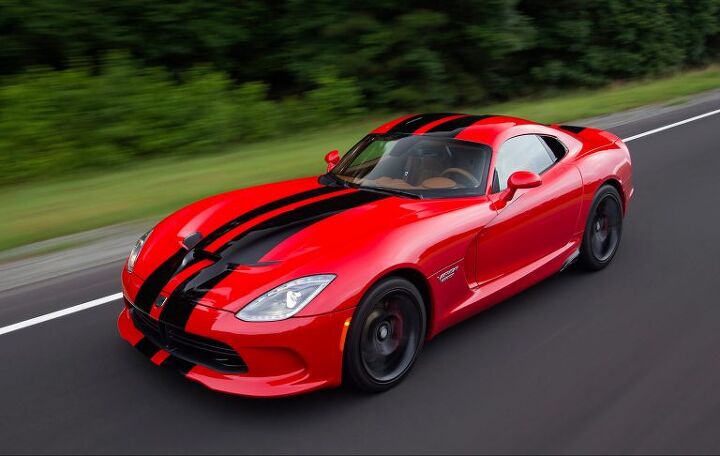



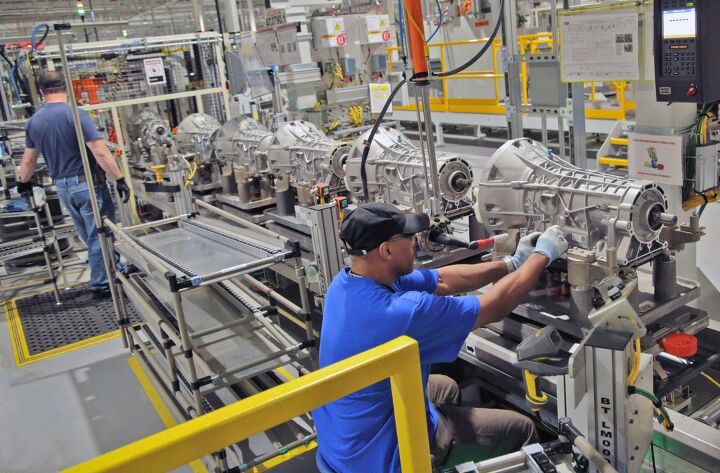
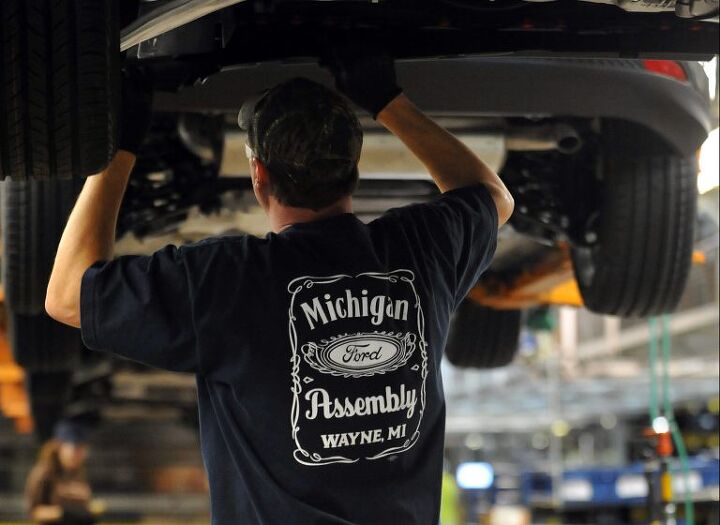
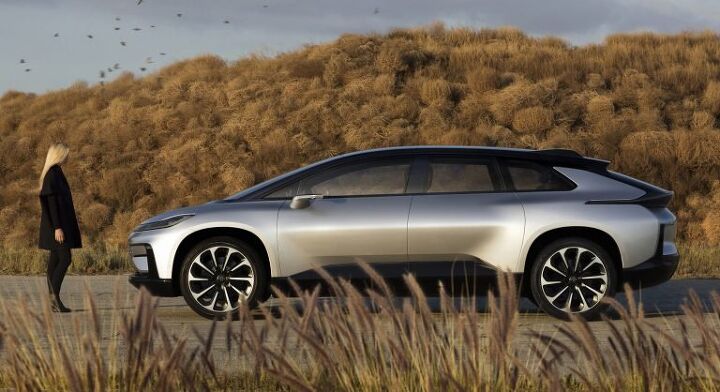


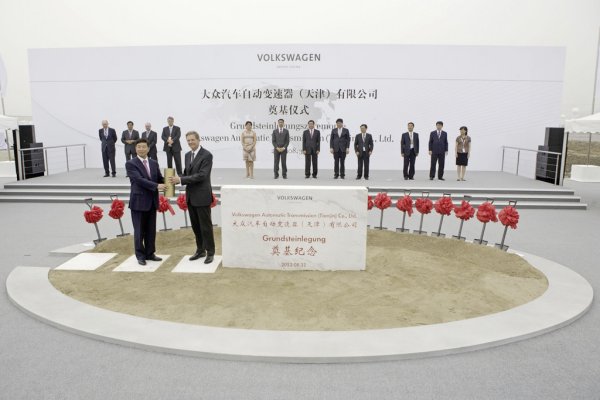
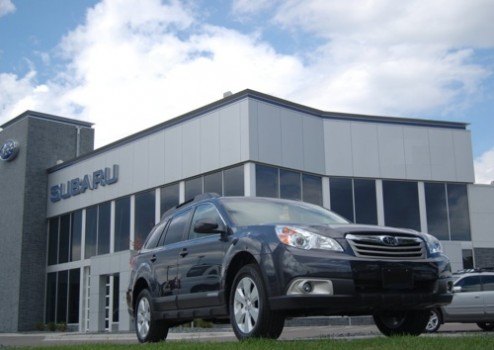














Recent Comments